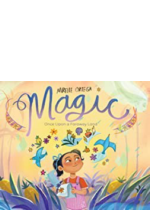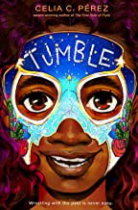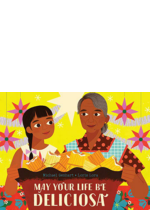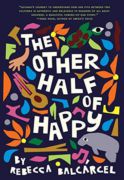Set against the backdrop of endless fields stretching to the horizon, the story follows a day in the life of a farm worker through the eyes of his proud son. From sunrise to sunset, the father toils tirelessly, gathering the crops that sustain their community and fill their bellies.
Through lyrical prose and stunning illustrations, the book illuminates the sacrifice and hardship endured by farm workers as they labor to provide for their families. It celebrates their unwavering dedication and the deep love that drives them to work from dawn till dusk, shaping the natural world with their hands.
Presented in both English and Spanish, “Harvesting Love / Cosechando Amor” is a bilingual treasure that honors the contributions of farm workers while offering young readers a window into their world. Parents and children alike will be captivated by the rich tapestry of colors and the poignant message of resilience, perseverance, and the enduring bond between parent and child.




